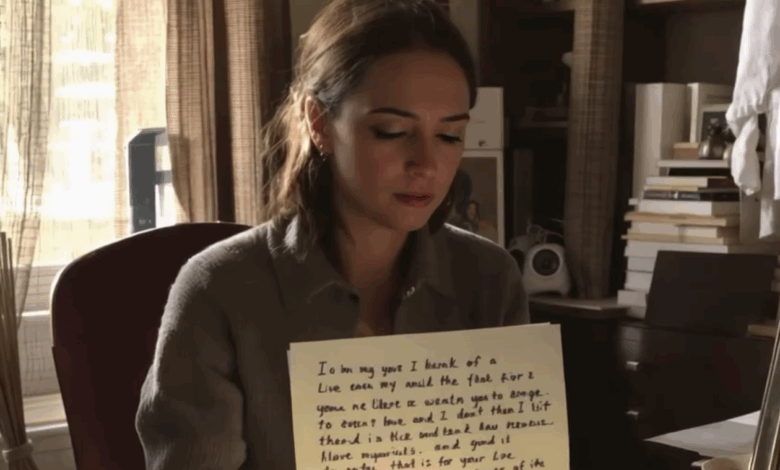
The Letter My Father-in-Law Left Behind
It began on an ordinary morning, the kind that feels slow and peaceful, with sunlight spilling through the curtains and the smell of coffee filling the kitchen. They were still grieving, though. Her father-in-law had passed away two weeks earlier, and the house still carried traces of him everywhere: his slippers by the couch, his jacket on the hook, his half-read newspaper on the table.
He had always been quiet, polite, and reserved — a man of few words but careful gestures. They weren’t especially close, yet she’d grown used to his presence in the house. So when her husband asked her to help sort through his father’s study, she agreed without hesitation.
The room was small but tidy, lined with shelves of old books and folders marked with neat handwriting. She opened drawers, sorted papers, and stacked photo albums by the window. That’s when she found it — a white envelope tucked inside a file labeled “House Documents.”
Her name was written on the front. Not “Mr. and Mrs.” — just her name, in that same steady handwriting she’d seen on birthday cards and grocery lists. For a moment, she thought it might’ve been a will-related note, something formal. But the inside wasn’t official at all. It was personal. The letter began simply: “I don’t know if you’ll ever read this, but I hope you do. There are things your husband doesn’t talk about, not because he’s hiding them, but because they hurt him.” Her hands trembled as she kept reading. The letter went on to describe small details — things she didn’t know her father-in-law had noticed.
The late nights. The arguments she thought no one had overheard. The way her husband shut down whenever certain topics came up. “He carries his mother’s silence,” one line read, “and I’m afraid that silence might cost him his marriage.” By the time she finished, tears blurred the ink.
The note wasn’t an accusation — it was a warning, written by a man who had seen patterns repeat themselves and didn’t want history to do it again. She didn’t tell her husband about the letter that day. She folded it carefully and tucked it inside a book on the shelf — the same one she knew her father-in-law used to read before bed.
For days, she carried the weight of it quietly, unsure whether to bring it up or let it stay as his last message to her. Weeks later, she finally told her husband that his father had left her something. He listened in silence, eyes fixed on the floor. When she finished, he nodded and whispered, “He did the same thing for my mom. She just never told me what it said.” The truth didn’t break them. It didn’t heal everything either. But it became the kind of truth that sits quietly in a family — a reminder that love sometimes speaks louder after it’s gone.




